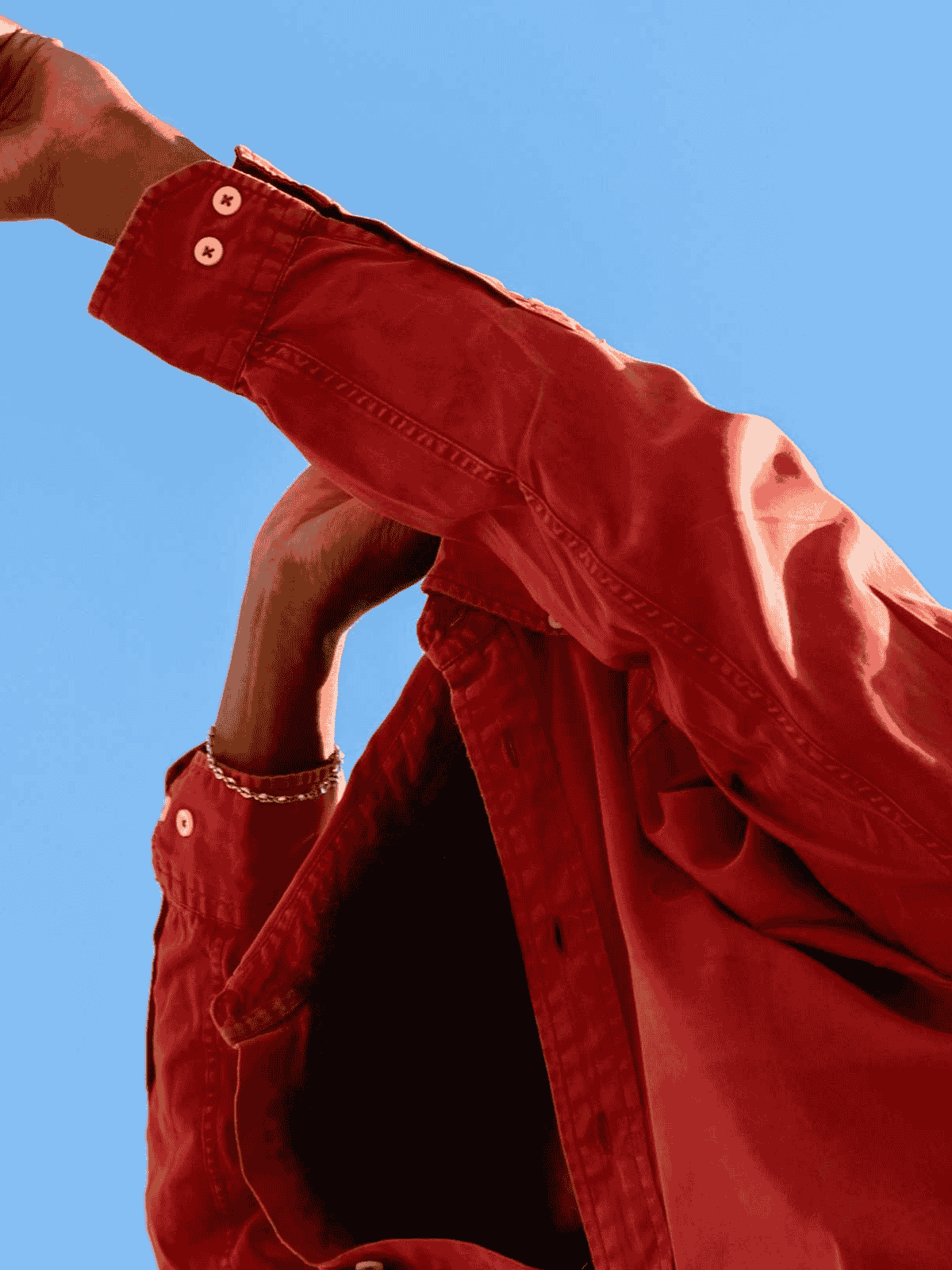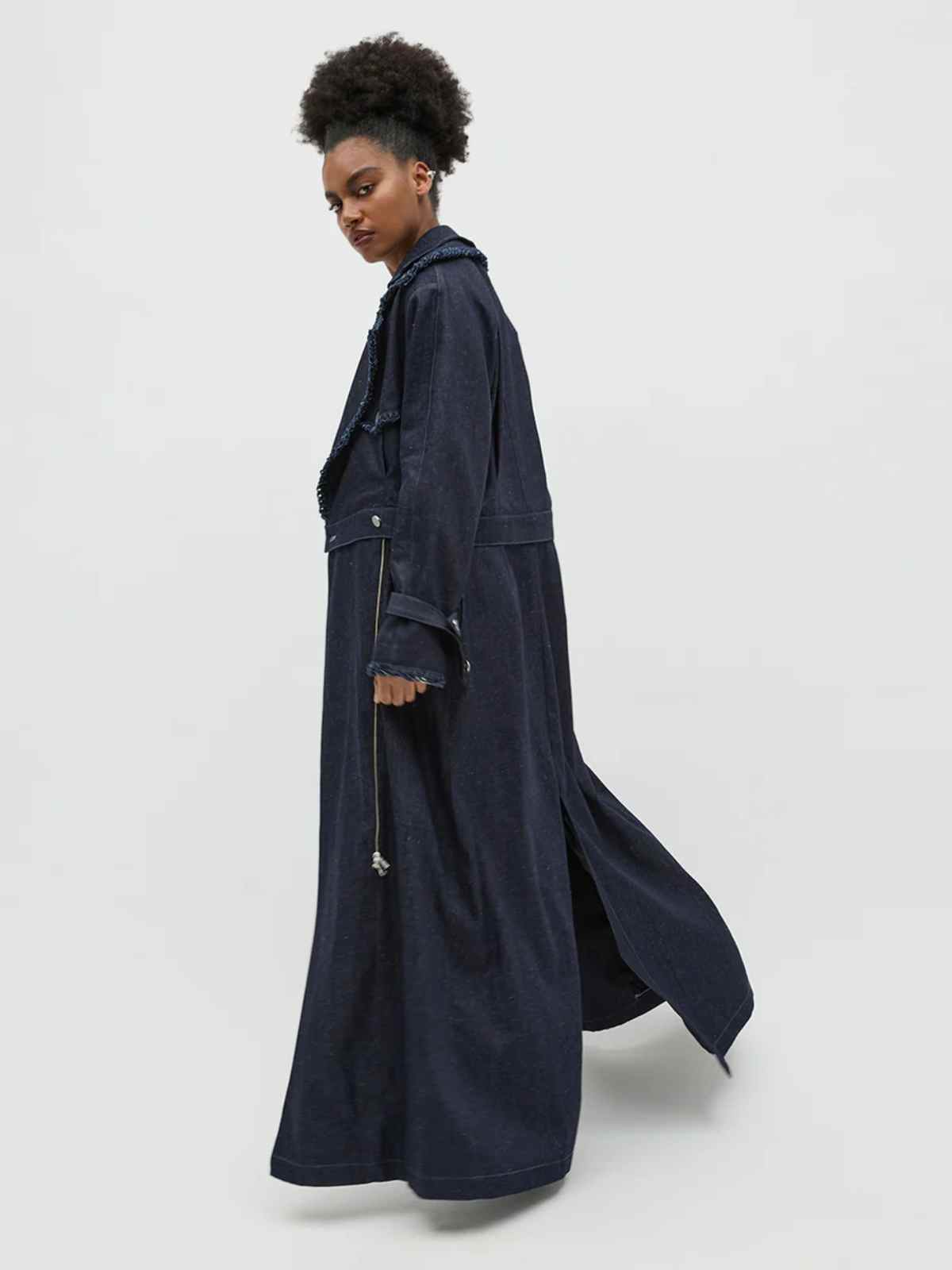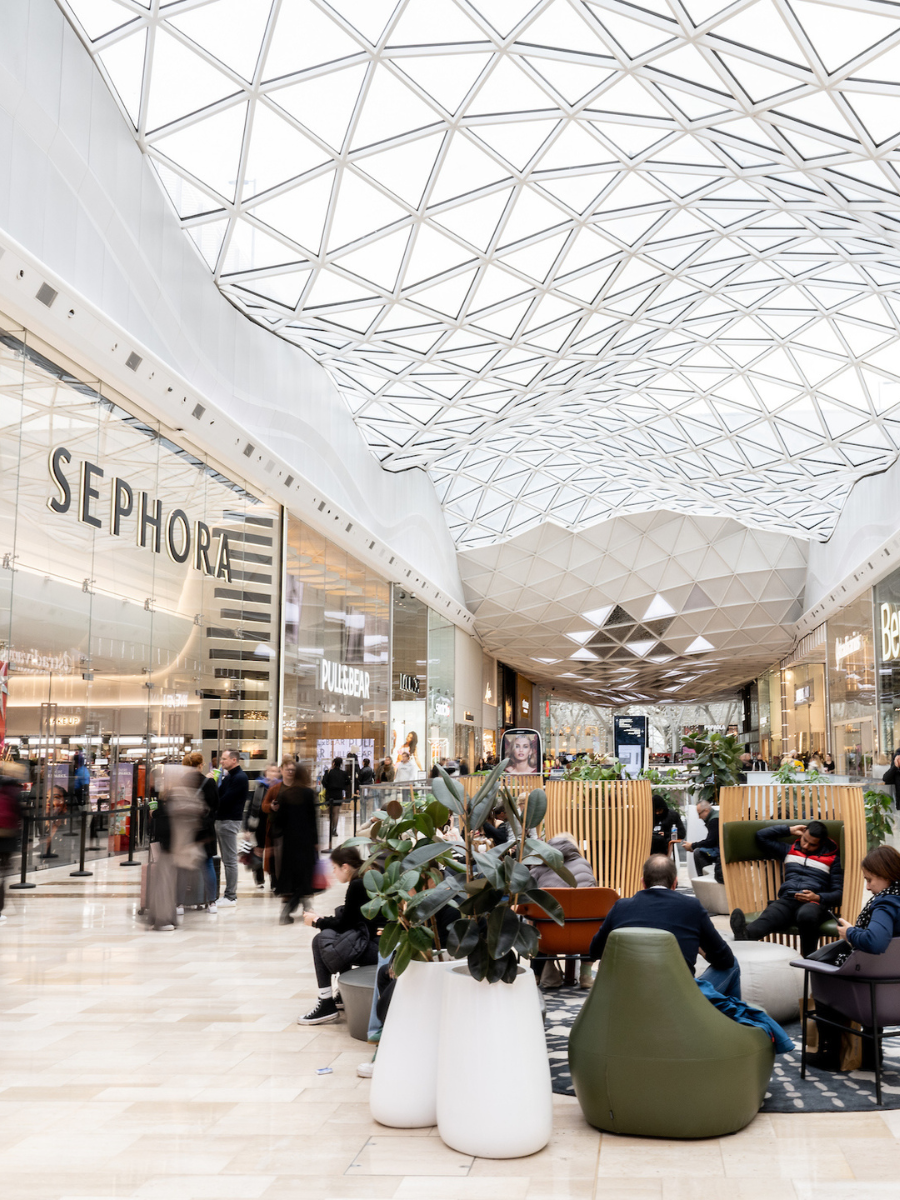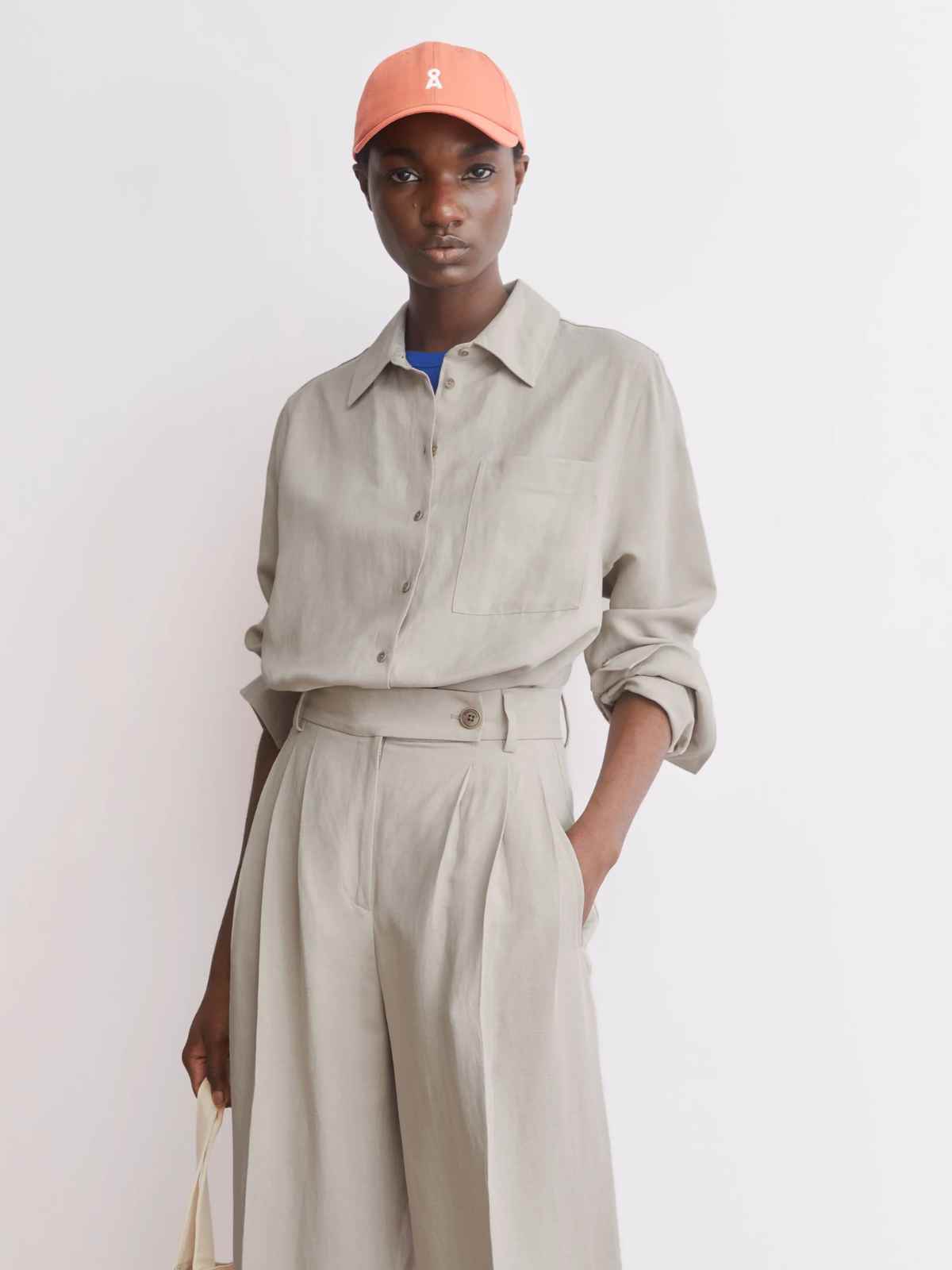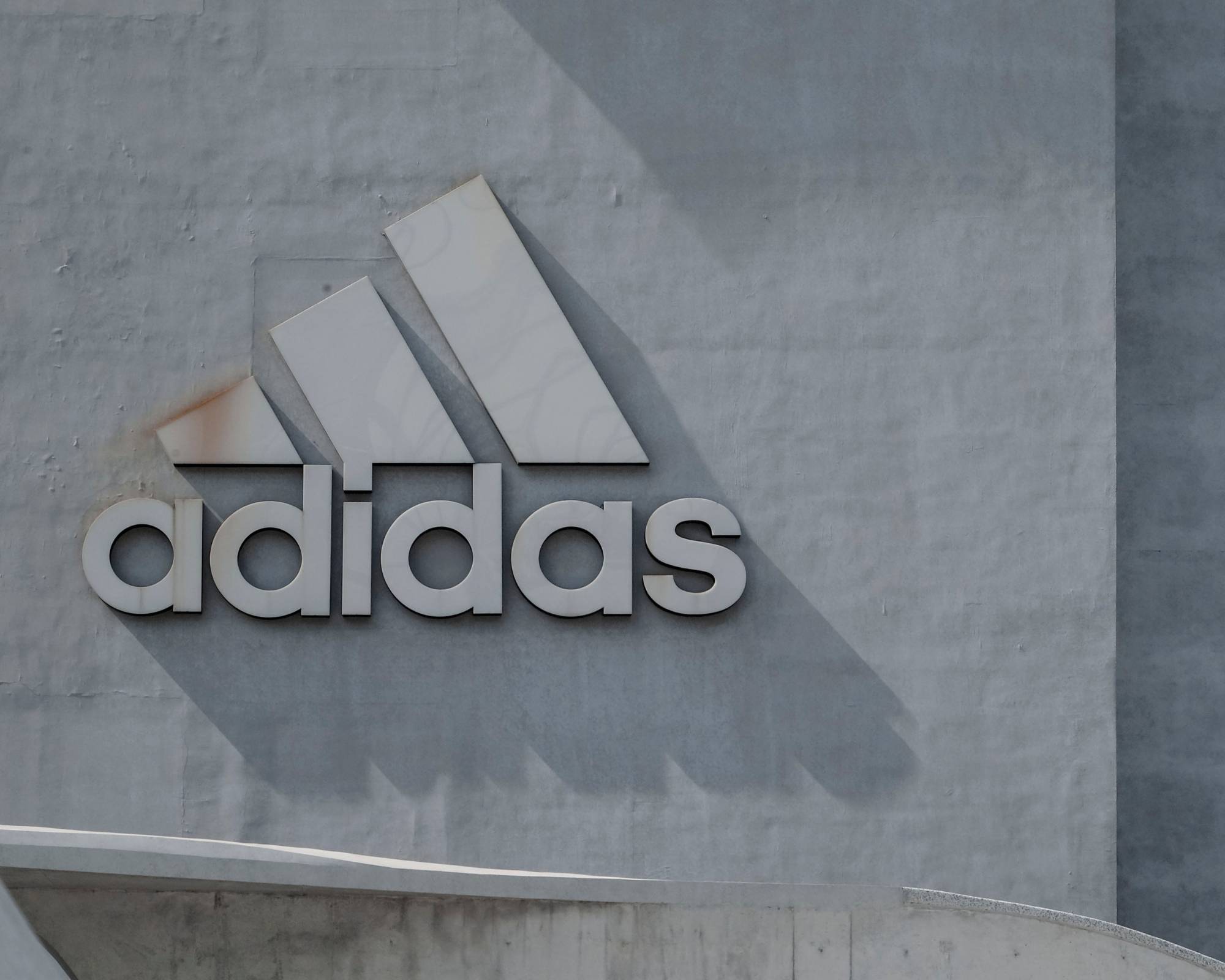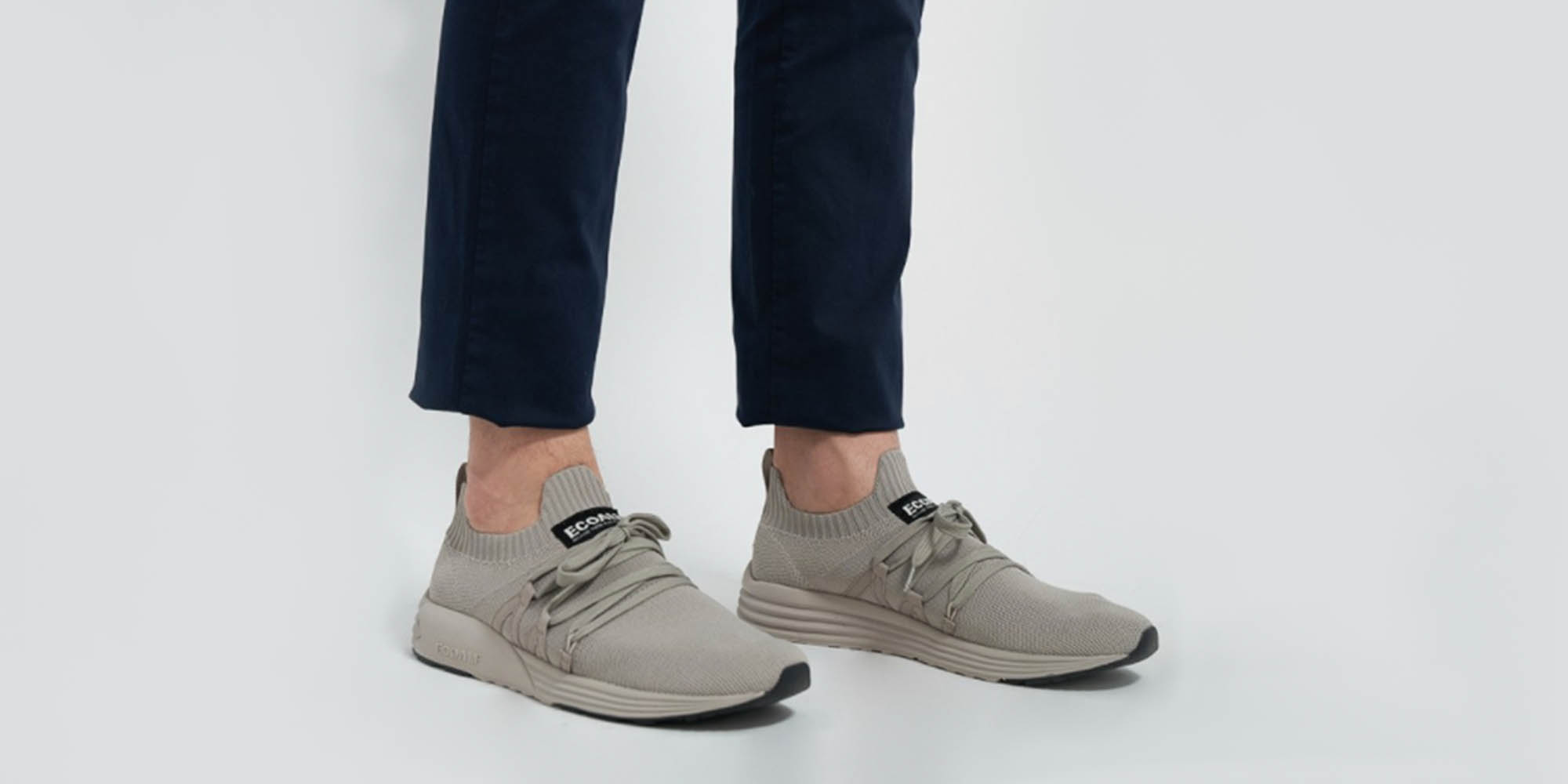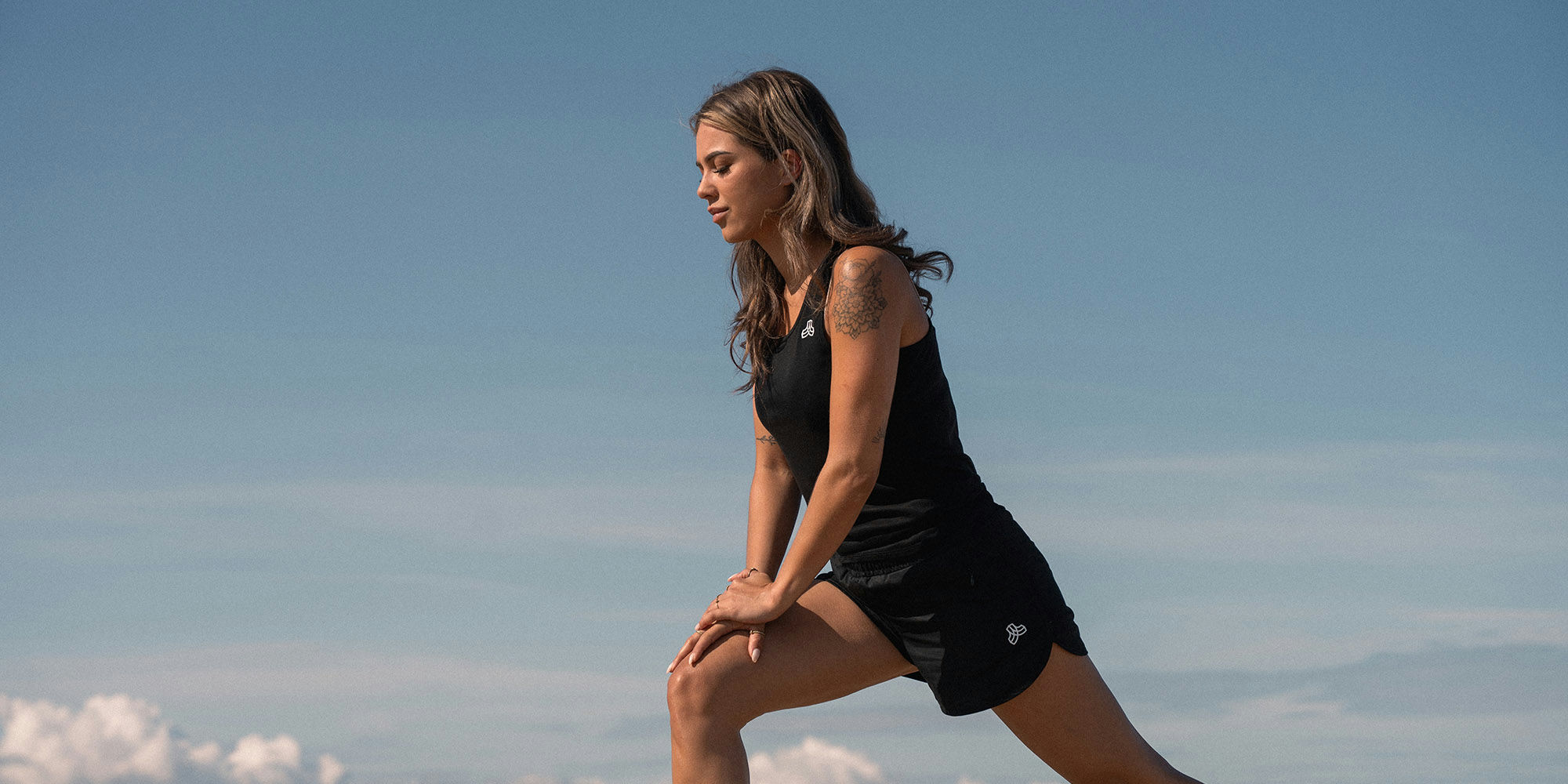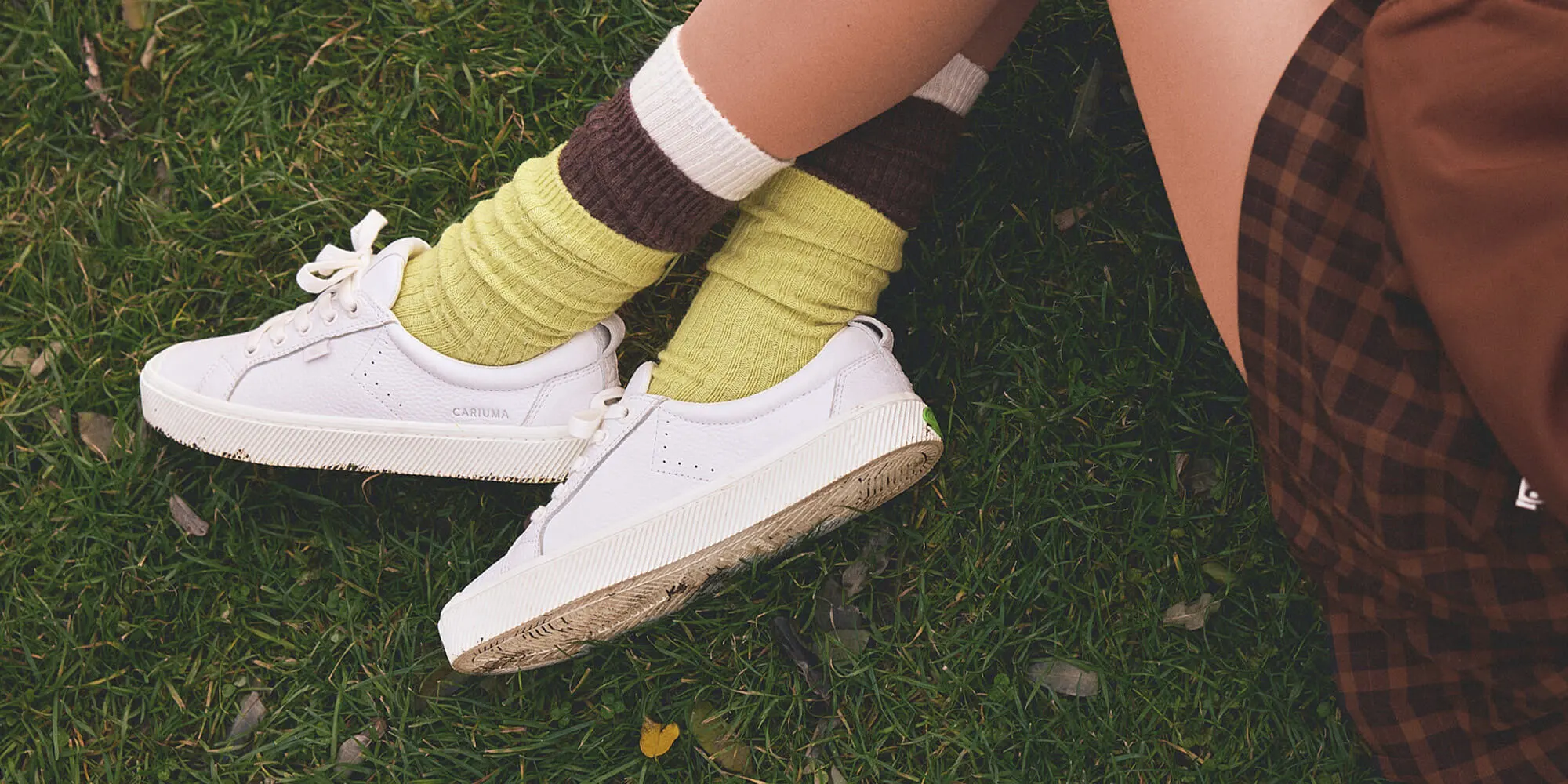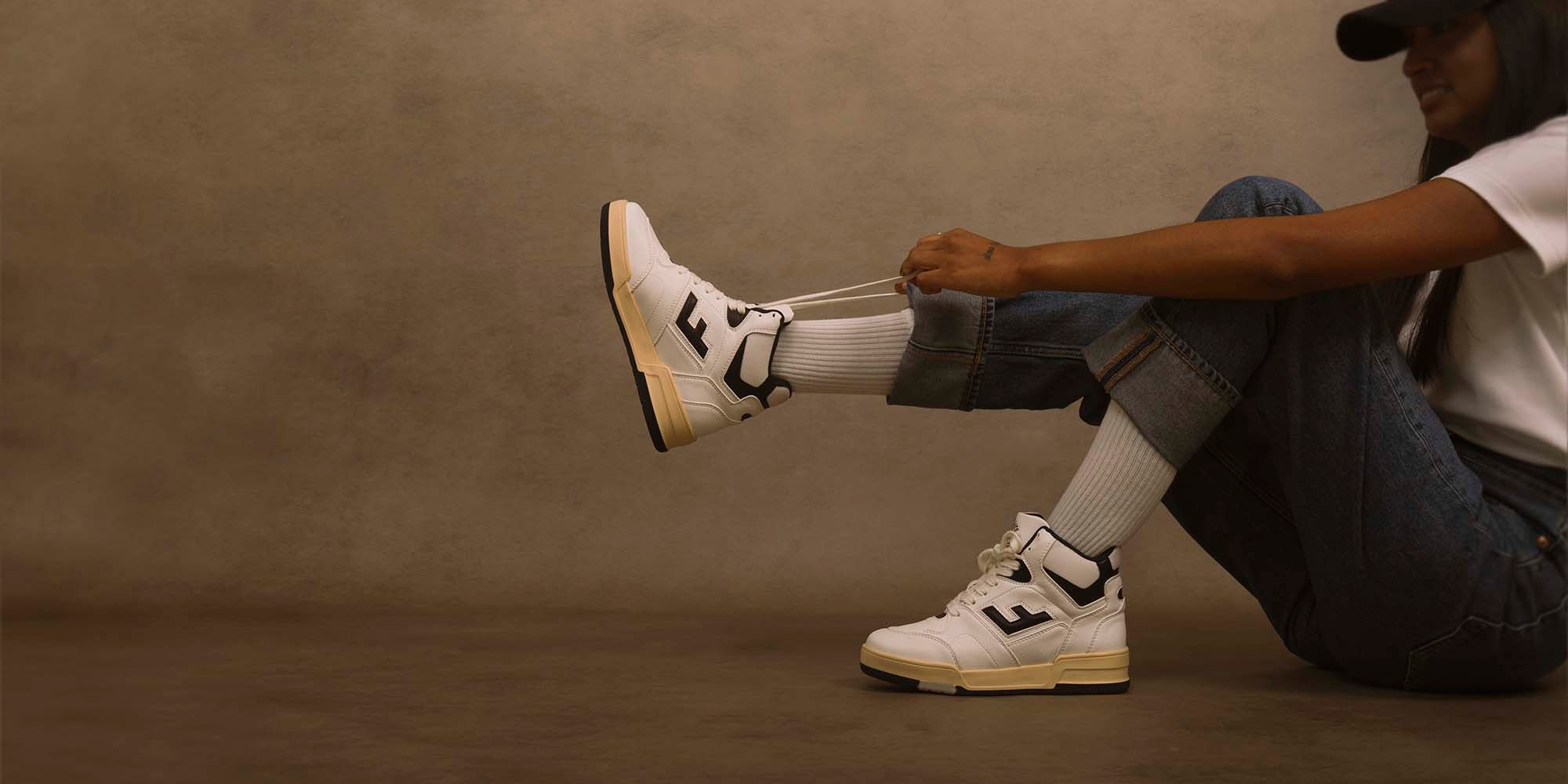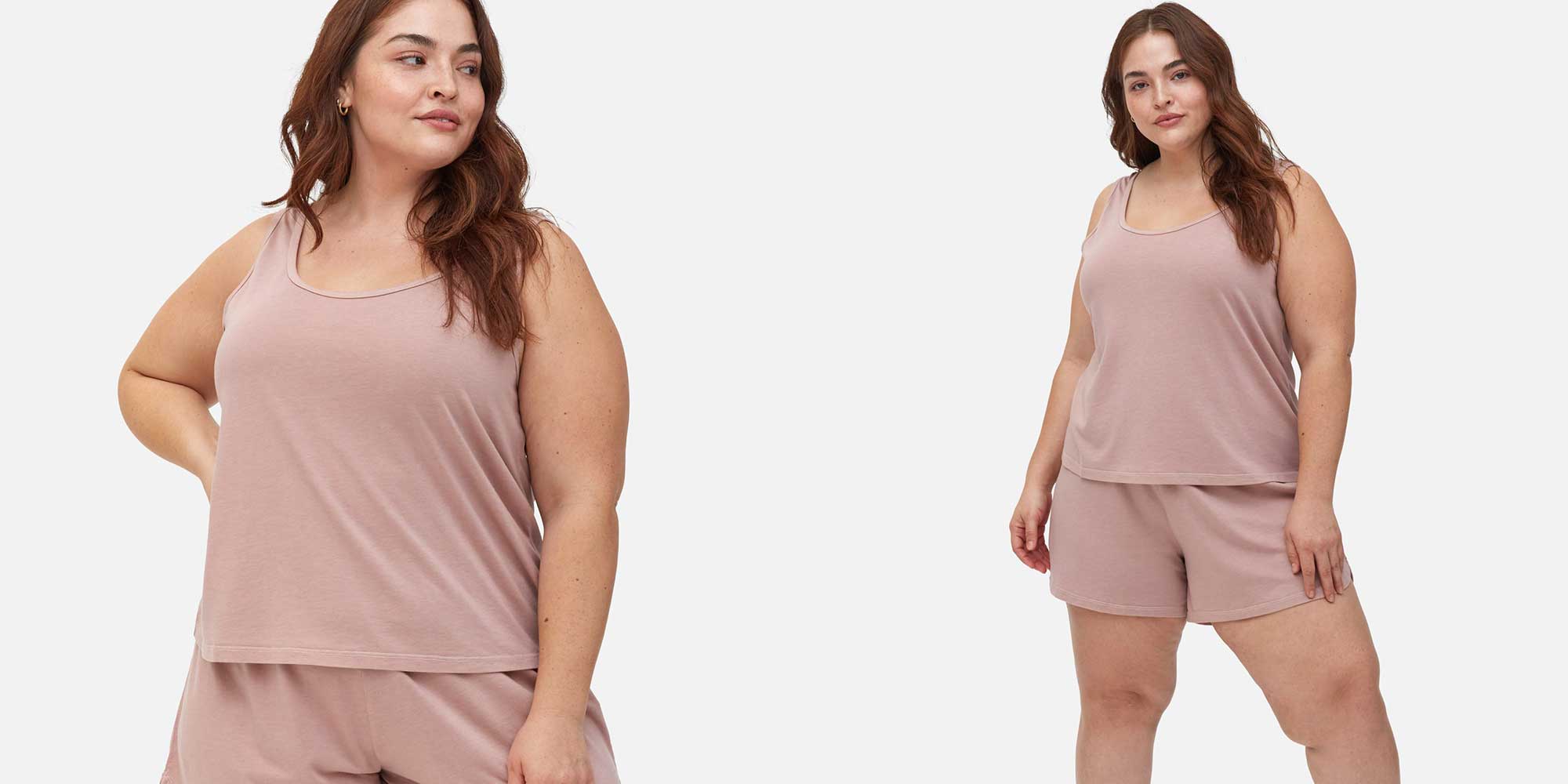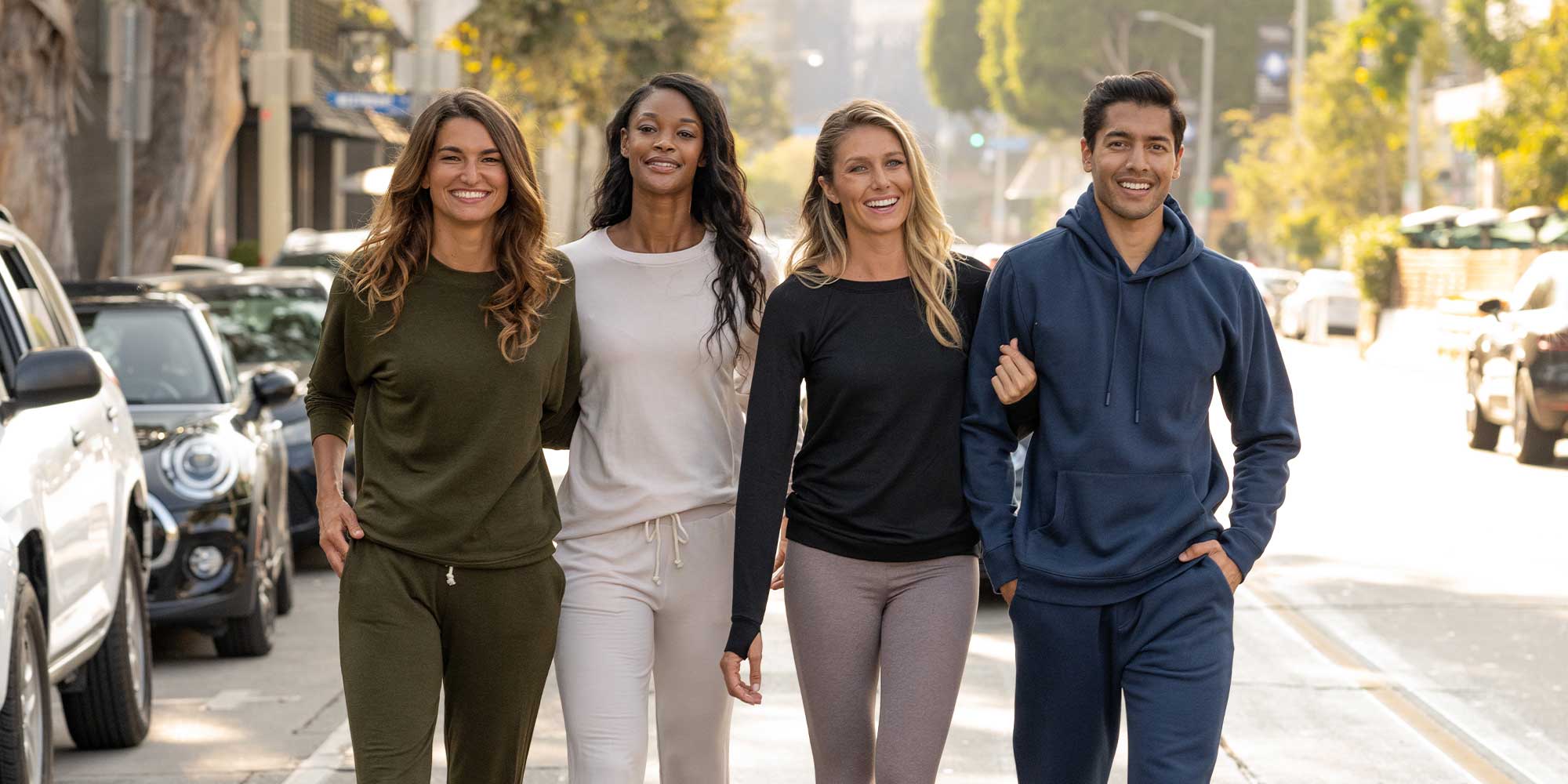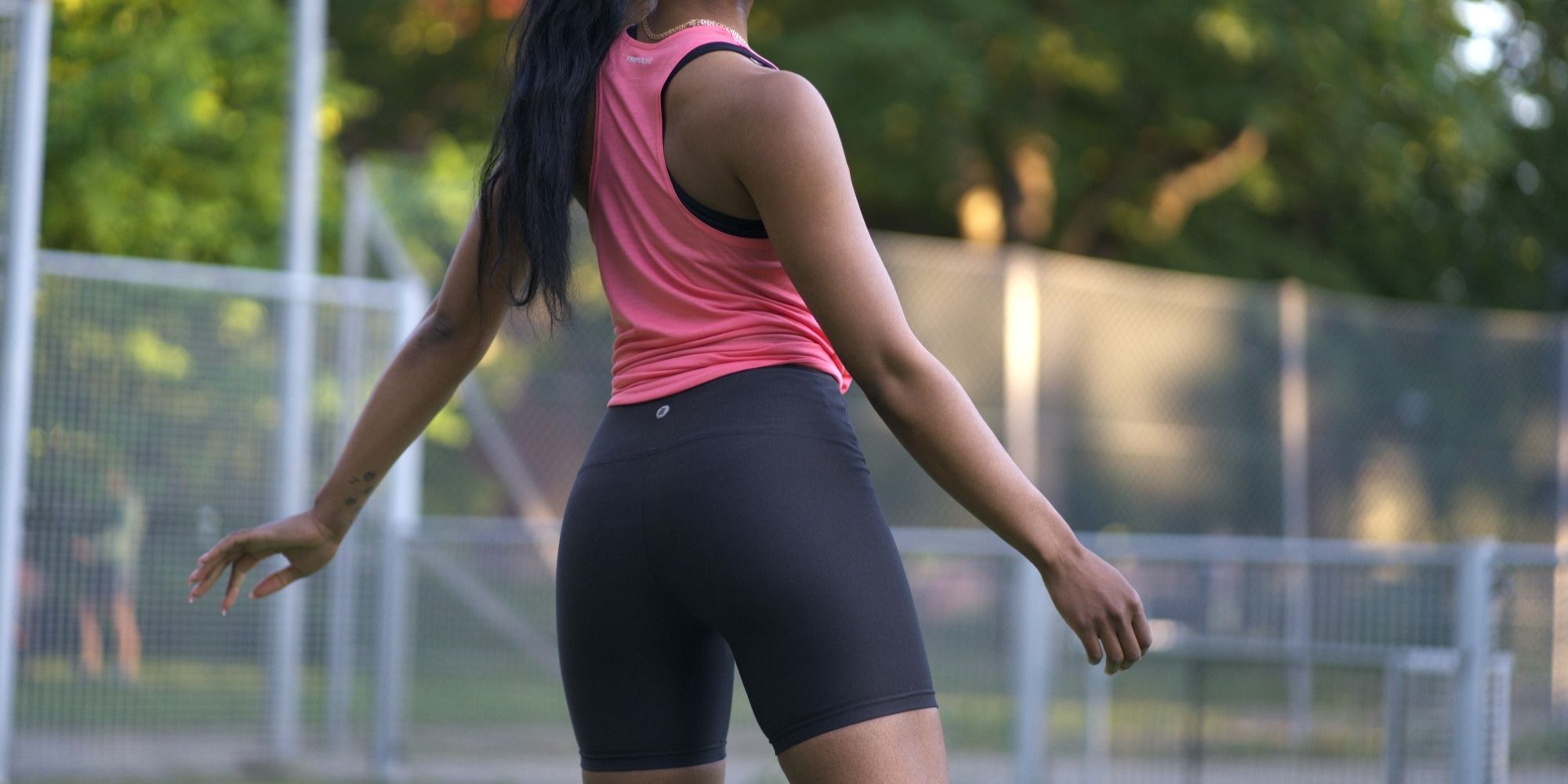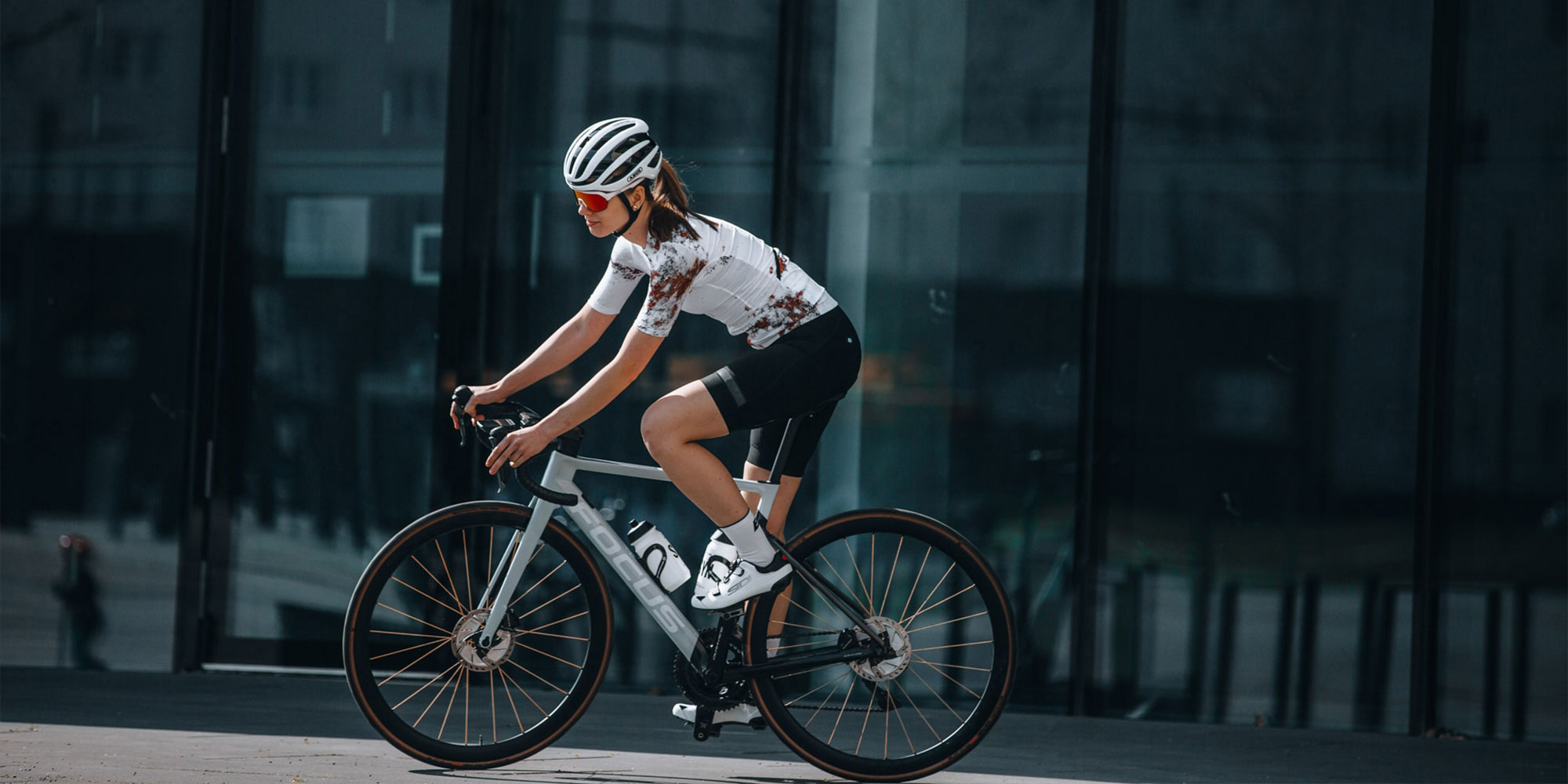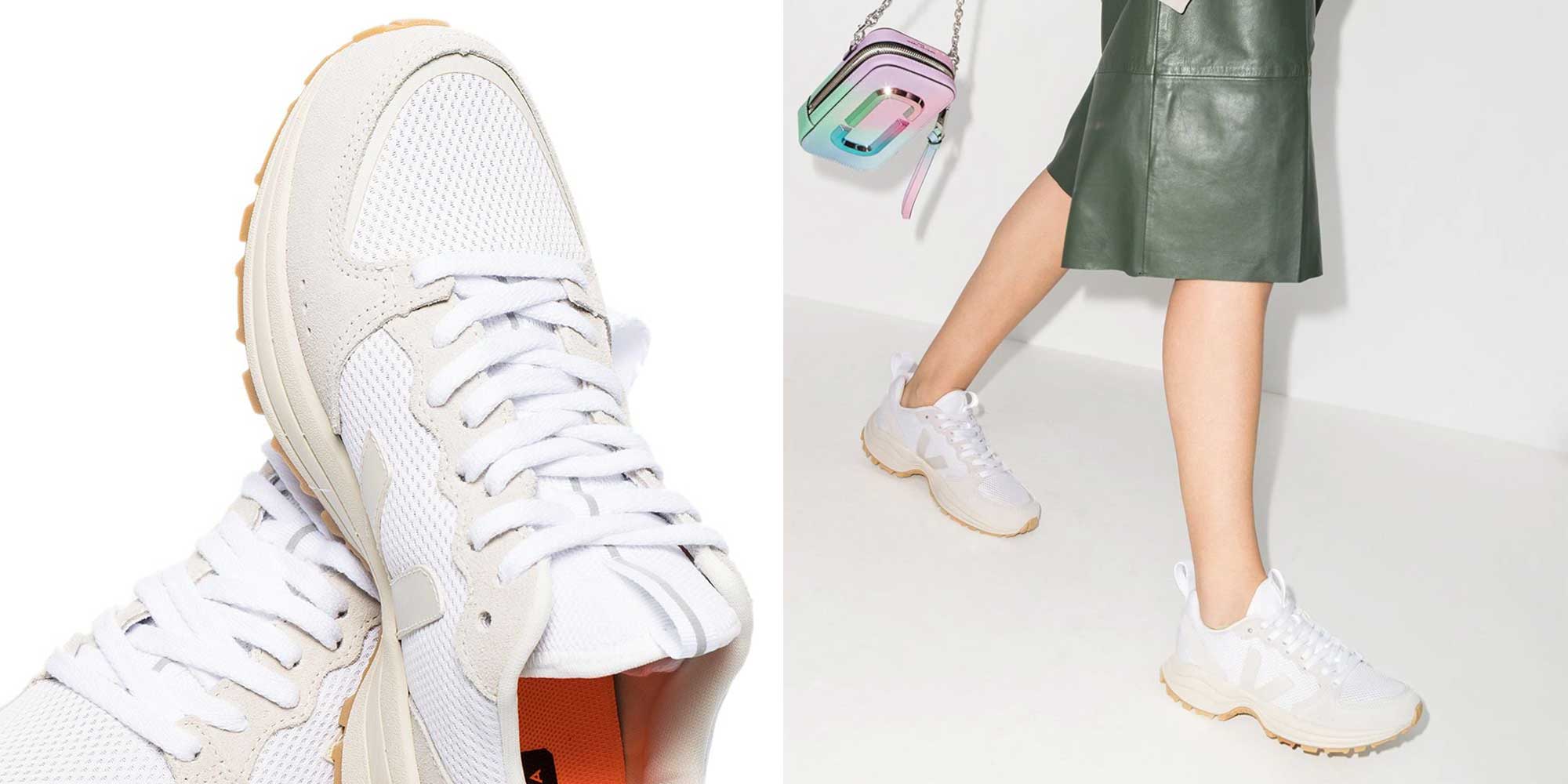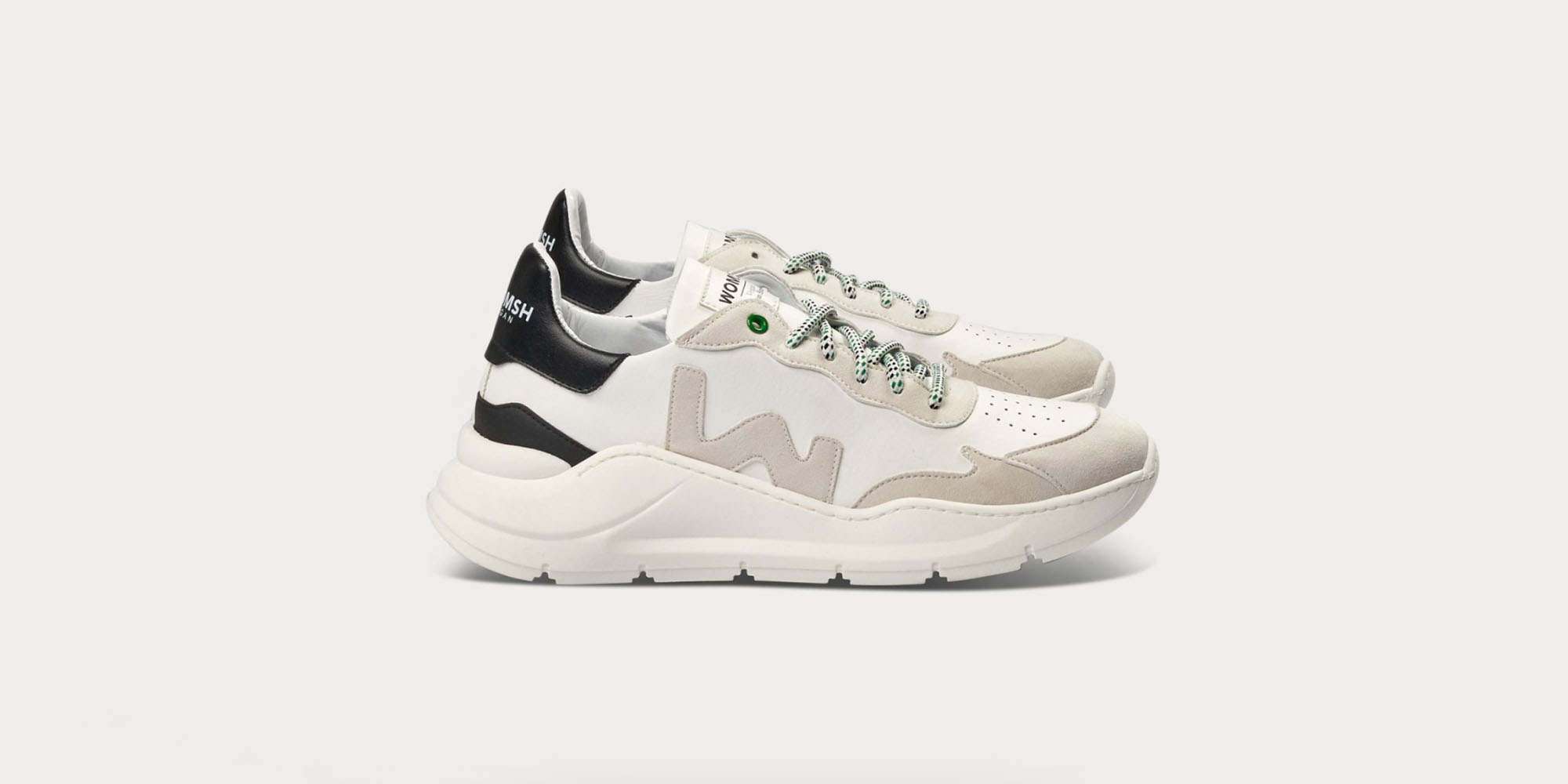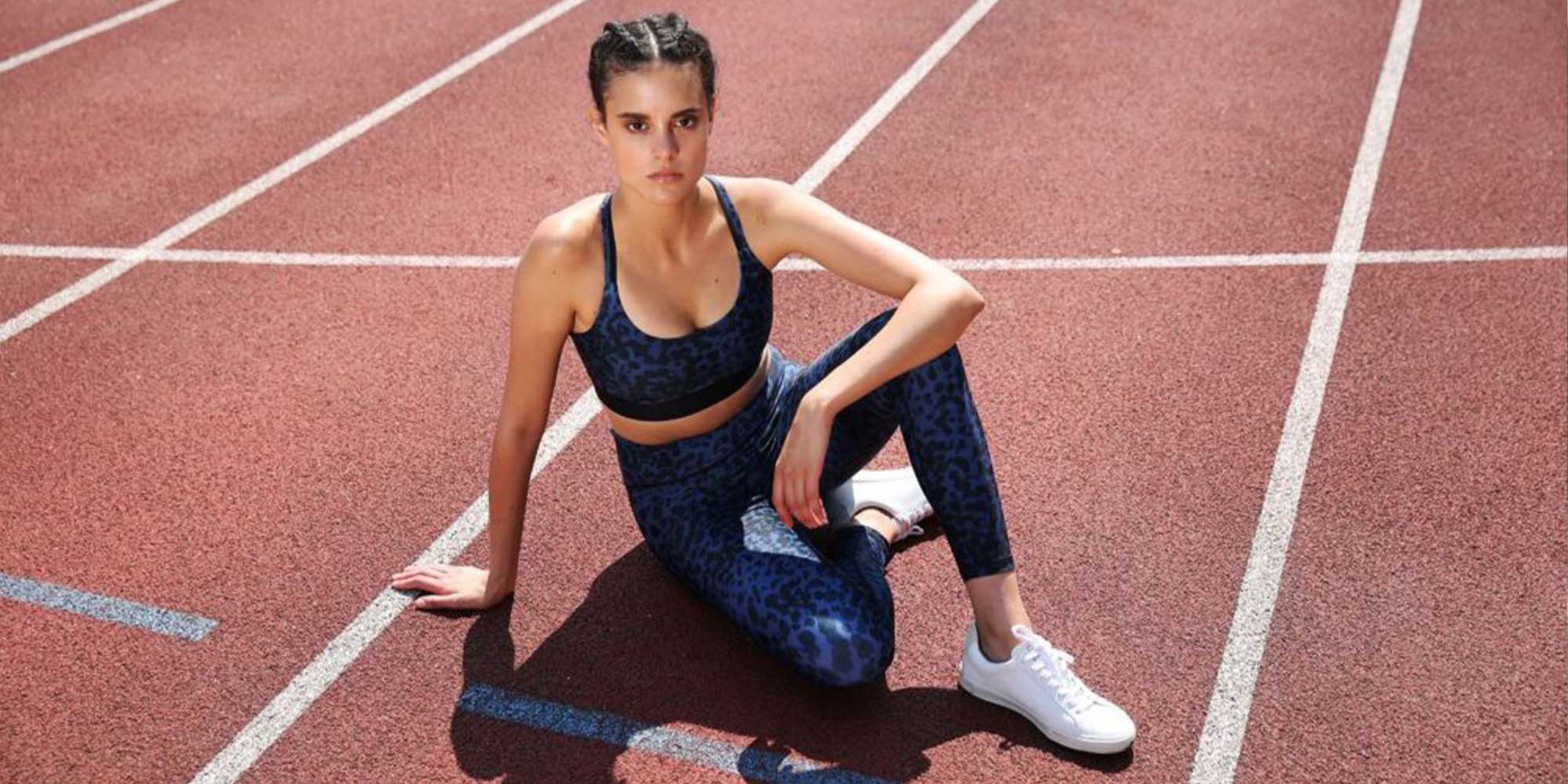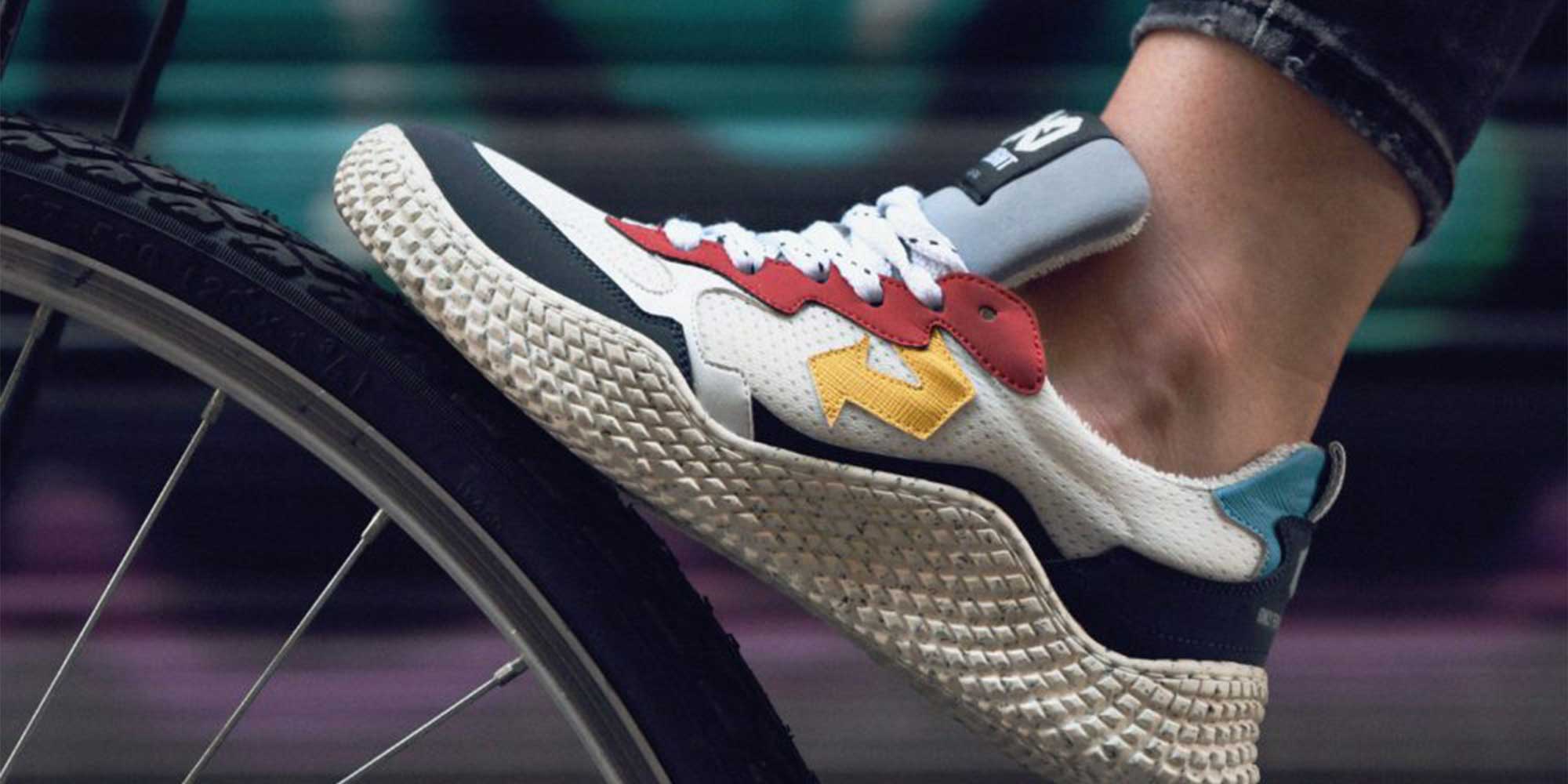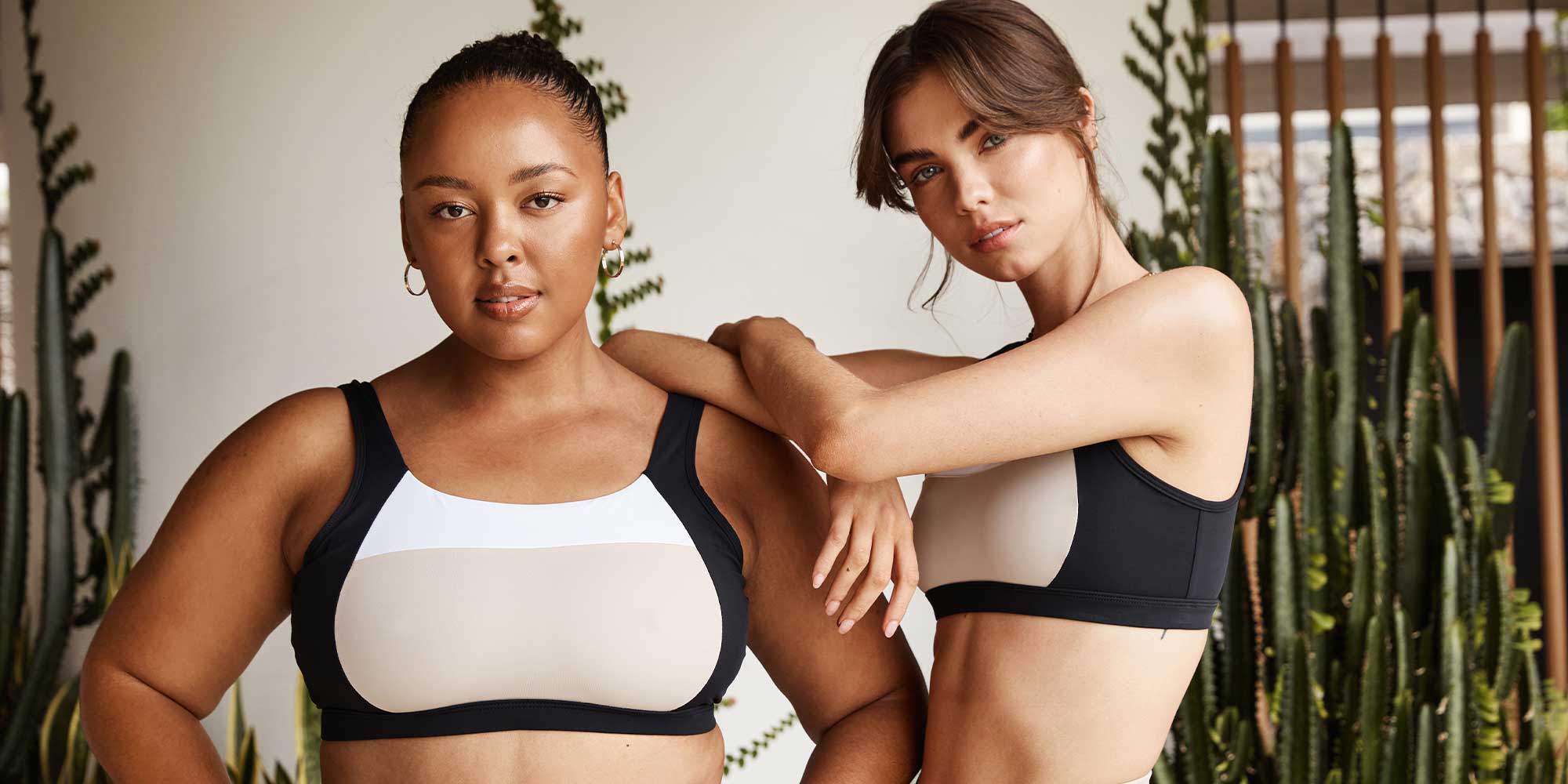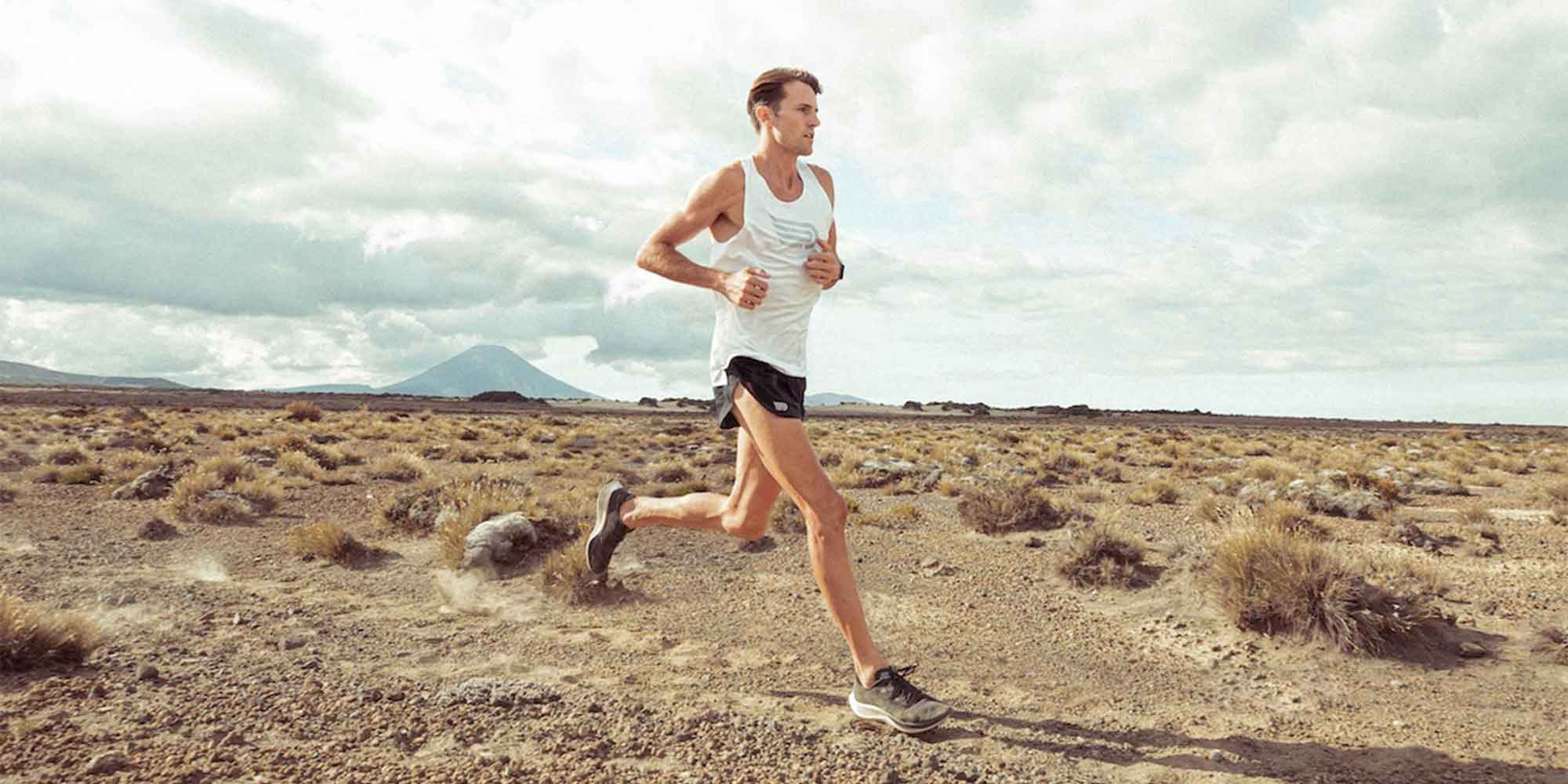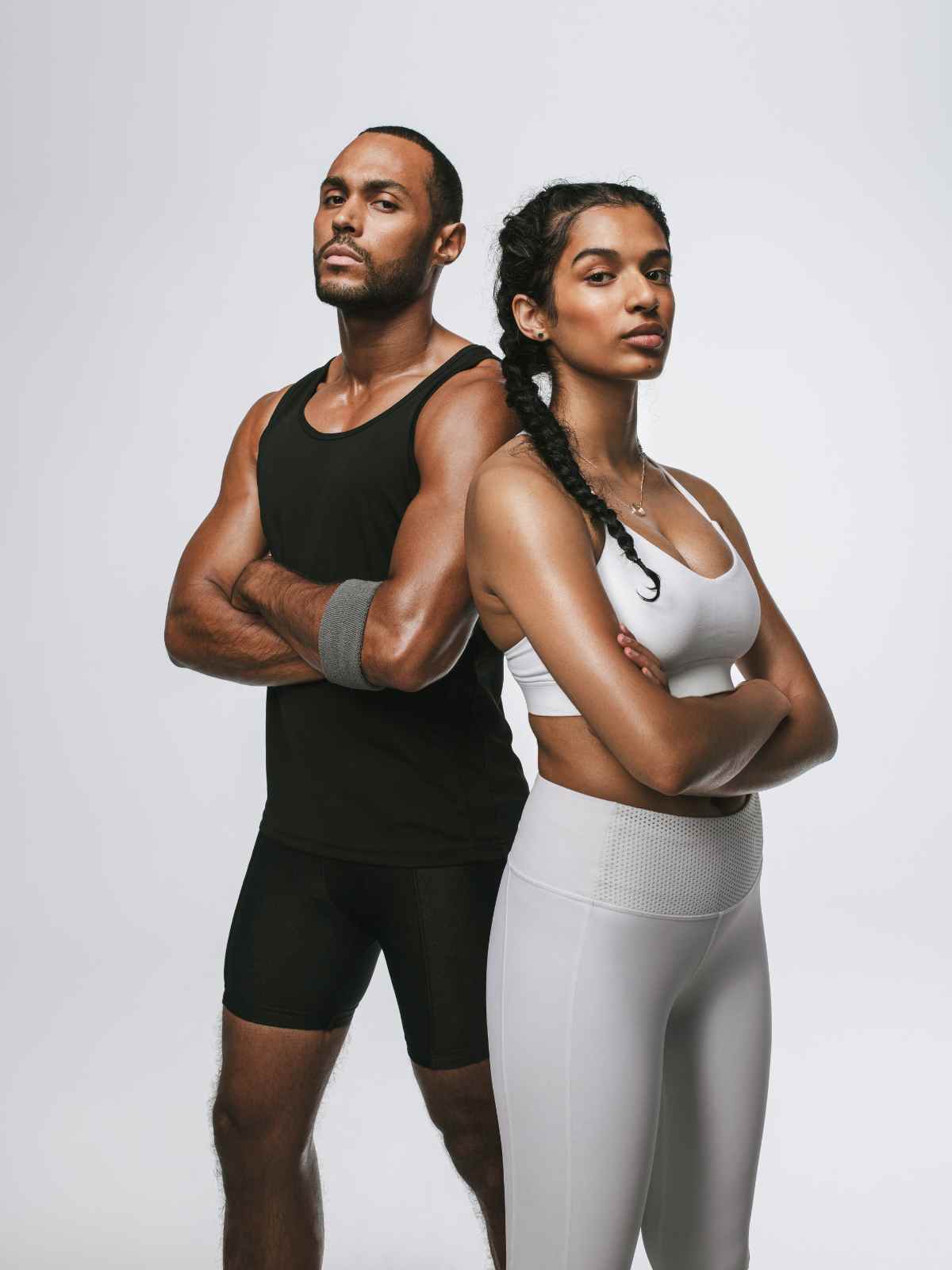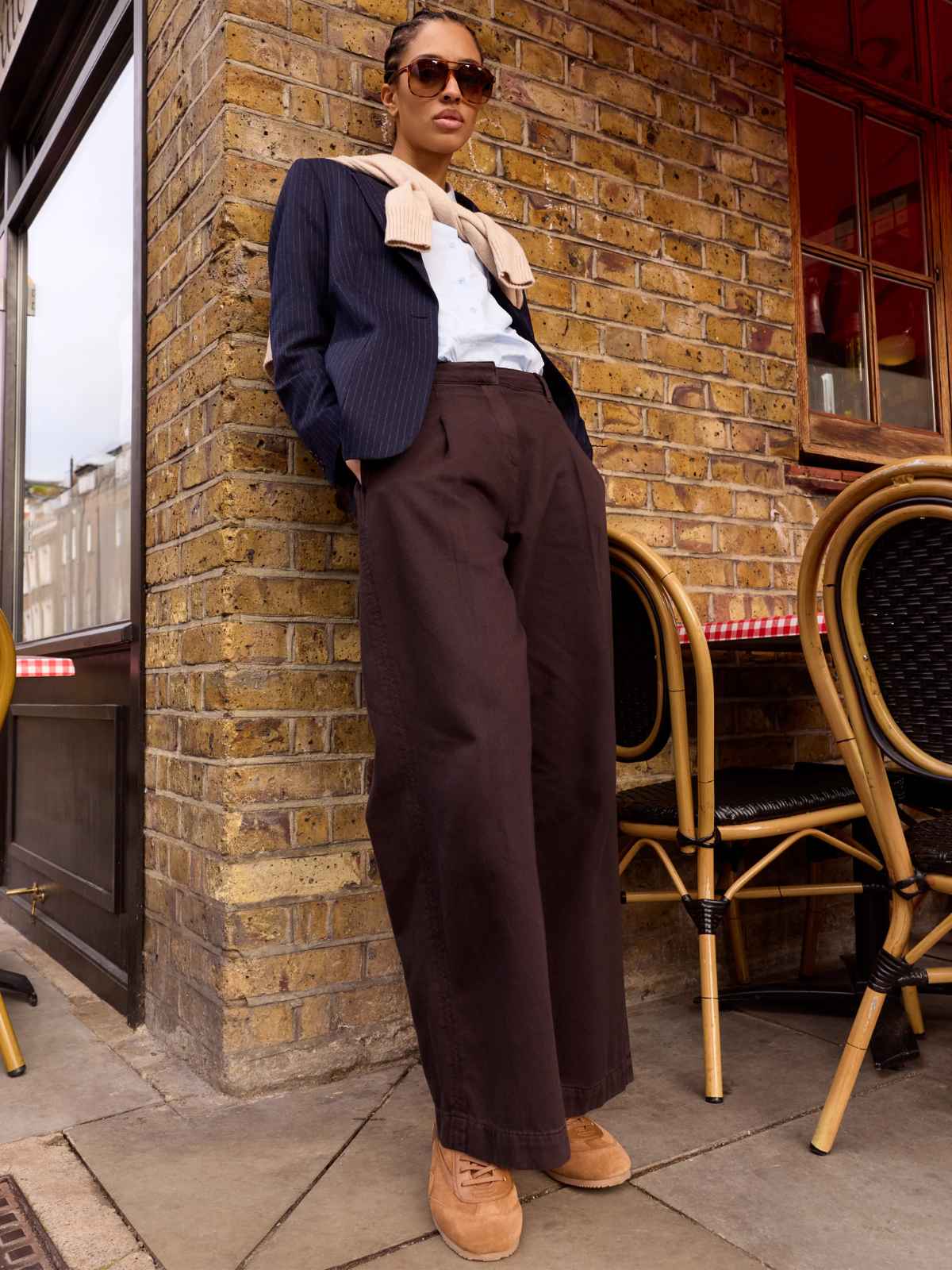Our editors curate highly rated brands that are first assessed by our rigorous ratings system. Buying through our links may earn us a commission—supporting the work we do. Learn more.
Adidas is the second largest activewear brand in the world after competitor Nike. But how ethical is Adidas when it comes to sustainability, labour rights, and animal welfare? This article is based on Adidas’ “Not Good Enough” rating published in November 2023. It may not reflect claims the brand has made since then. Our ratings analysts are constantly rerating the thousands of brands you can check on our directory.
How does Adidas rate on Good On You in 2024?
The fashion industry is always changing, and our ratings are evolving with it. We regularly update our methodology to stay on top of emerging issues, ensuring our ratings are relevant, useful, and timely, so that you can always make the best choices for yourself.
Adidas has also evolved over the years. From humble beginnings in 1949 in Bavaria, Germany, the sportswear giant (founded by Adolf Dassler, the brother of Puma founder Rudolf Dassler) has grown into the second-largest activewear brand in the world after Nike. It is known and loved for its iconic Stan Smith sneakers, logo sweatshirts, tees, and sportswear, worn by athletes all over the world.
How does Adidas rate on Good On You in 2024? How ethical is Adidas?
Environmental impact
One change in our methodology has been to allocate extra points for the setting of science-based carbon emission reduction targets, and while Adidas has set a target to reduce greenhouse gas emissions generated from its own operations and supply chain, it’s not on track to meet this target.
Science-based targets currently represent the highest standard when setting a greenhouse gas emissions target. To set them, Adidas and other brands will have allocated a large amount of resources, data collection, and time to provide the relevant information to demonstrate said target is aligned with a 1.5 or 2 degree global temperature reduction pathway. However, it is also important for brands to demonstrate how they intend to meet the targets and their current tangible progress.
Speaking of targets, Adidas has set a target to eliminate hazardous chemicals by 2025 and claims it’s on track. Adidas also scored a B for its Carbon Disclosure Project climate and water questionnaires. Brands that we have rated “Good” this year for the environment tend to be scoring A or A-, so there’s a clear discrepancy here, and Adidas needs to put in the work to raise its score.
While the brand does take some (limited) steps to prevent deforestation by avoiding raw materials listed on the IUCN Red List of Threatened Species, it falls short of publishing its own policies, particularly on materials linked to deforestation, such as leather. We also found no evidence Adidas has policies to protect biodiversity in its supply chain—another key issue in our methodology.
We found no evidence Adidas has policies to protect biodiversity in its supply chain—a key issue in our methodology.
Adidas was also penalised for misleading consumers over environmental claims in 2021. According to the French Jury de Déontologie Publicitaire (JDP), Adidas’ “Stan Smith Forever. 100% iconic, 50% recycled” campaign broke advertising rules and misled consumers. The brand didn’t inform consumers of the total proportion of the shoe that is recycled and was misleading in its use of the “End plastic waste” logo. The JDP also noted that the claim of “50% recycled” gives shoppers the impression that 50% of the total material used in the trainer is made of recycled materials, which isn’t true. The message is ultimately confusing to consumers and makes it hard to determine what’s legit and what’s not. A clear case of greenwashing.
As a result, Adidas’ environmental rating has stayed “It’s a Start”. The brand’s use of some lower-impact materials—including recycled materials—and its research with industry bodies on the impact of microplastics are not enough to compensate for the lost points discussed above.
Labour conditions
Adidas’s labour rating has unfortunately dropped from “It’s a Start” to “Not Good Enough” in its most recent rerate, indicating it’s falling behind on critical industry issues. People are the backbone of the fashion industry, and brands need to take tangible actions to protect workers. Our methodology rewards brands that provide fair and safe working conditions over the brands that simply audit suppliers.
Adidas received a score of 51-60% in the Fashion Transparency Index, which is okay, but lower than its previous score of 61-70%. Adidas’ social auditing program has been accredited by the FLA Workplace Code of Conduct including all of the final stage of production. The brand also disclosed policies to protect workers in its supply chain from the impacts of COVID-19 during the height of the pandemic.
Worryingly, the area where Adidas has still a long way to go is ensuring workers in its supply chain are paid a living wage. The Foul Play report by the Clean Clothes Campaign and Collectif Ethique sur l’Etiquette highlight the difference between the ever-increasing amount of money paid for sponsorships to sports stars and other marketing expenses, compared to the reduction of the share of the final price of your sports gear paid to workers in the supply chain. Adidas does have a project to improve wages in a part of its supply chain, and has made a public commitment to improve wages in its supply chain, however, we found no evidence the brand ensures payment of a living wage in most of its supply chain.
Adidas still has a long way to go in ensuring workers throughout its supply chain are paid a living wage.
Since 2020, we’ve been noting allegations of brands’ involvement in the human rights abuses taking place against Uighur people in China’s Xinjiang Province. We take them into account in our ratings and have penalised brands named in reports by various human rights and news organisations. While Adidas has made moves away from production in the region, and pledged to boycott cotton from Xinjiang, there’s a lot more to the issue. We know this is an important question for many of you and we’ll keep an eye on Adidas and other brands as the situation evolves. The brand was also linked to human rights violations in Cambodia in 2020, though in November 2023, the brand’s supplier in the country agreed to reinstate and backpay workers who had previously been sacked for forming a union and campaigning for better working conditions.
Animal welfare
Adidas’ animal rating remains “Not Good Enough”. It now has a formal animal welfare policy (an improvement from its last rating) aligned with Five Freedoms, but has no clear mechanisms to implement it. It does not use fur, exotic animal hair, or angora, but it is still using down. Adidas also still uses exotic animal skin and leather, including kangaroo leather—an emerging animal welfare issue, which has led the brand to be condemned by some activists in the US as a new bill was introduced in 2021 to outlaw the sale of kangaroo body parts in the country (which ultimately did not make it through congress to be enacted).
Adidas states that it has a policy to source wool from non-mulesed sheep but does not provide evidence to verify its claims. Although the brand traces some animal-derived materials to the first production stage, that doesn’t compensate for its ongoing use of controversial materials in its products.
Overall rating: ‘Not Good Enough’
So, how ethical is Adidas in 2024? Adidas’ overall rating is “Not Good Enough”.
While Adidas has shown that it is making progress in terms of sustainability and labour rights, at the end of the day the brand is still very much a part of the fast fashion industry. Producing huge quantities of garments (most of which are not made from preferred materials) has disastrous effects not only on the environment, but also on workers who often have to work long hours for very little pay in order to reach production targets.
Adidas still has a way to go before it can be considered a responsible brand. It could start by ensuring its suppliers are paying living wages to workers. With €22.5 billion net sales in 2022, this should not be a problem.
It’s worth noting that of the thousands of brands that Good On You has rated, only a handful of large brands have achieved an overall rating of “Good”. For those who have previously purchased Adidas based on our ratings, note that it still remains one of the higher-scoring large brands and is in the top 10%—particularly on environmental issues—though we acknowledge it still has a long way to go.
So this score doesn’t mean you should get rid of your Adidas clothes and kicks. On the contrary, cherish what you already own: as we know, keeping our clothes for longer is one of the most sustainable things we can do.
Note that Good On You ratings consider hundreds of issues and it is not possible to list every relevant issue in a summary of the brand’s performance. For more information see our How We Rate page and our FAQs.
If you want to shop more in line with your values, Good On You recommends you support brands that embrace a slow fashion model. We’ve rounded up a few of our favourite similar brands to Adidas.
Good swaps
Here’s our list of “Good” and “Great” alternatives to Adidas.
